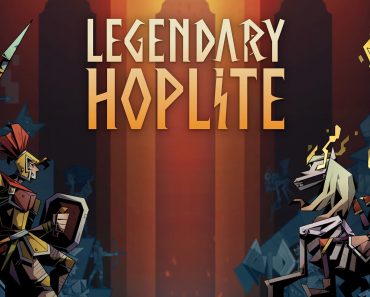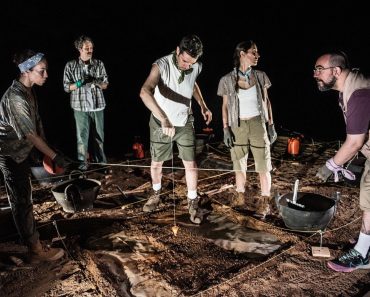A giant holding the world on his shoulders is not a matter of historical accuracy. You cannot simply consult Zeus’s diary to fact-check yourself. And any decent historian will tell you that even if you had such a diary, it would just be one point of view. This unreliability is part of the appeal; myths invite storytellers to find new angles on known legends.
Mythology has always grappled with the most contentious things in society. Gilgamesh’s story is about losing a lover and grappling with your own mortality. Oedipus’s name is synonymous with mommy issues. Homer’s Iliad is about humanity’s most political activity: war. Anything belongs in a myth, because myths are already about connecting with the world around us.
The PEOPLE App is now available in the Apple App Store! Download it now for the most binge-worthy celeb content, exclusive video clips, astrology updates and more!
As popular as Greek myth retellings are, few Greek novelists are getting published in that space, compared to the American and British authors who dominate the genre. Greek mythology has been remixed so many times, fed to international audiences in children’s cartoons and action movies and video games, such that it feels like it belongs to the entire world.
Penguin RandomHouse
Of the dozens of Greek authors I’ve met, almost all just want a seat at the table. Many of them are disabled and LGBTQ+, and want to explore the classics in ways no one else has yet done. When I announced Wearing The Lion, my novel about the fraught relationship between Hera and Heracles, nobody was more encouraging than Greek authors who were excited by what I was doing.
We live in a time where everyone watched Kaos, everyone is humming songs from Hadestown and one of the most anticipated videogames is Supergiant’s Hades II. Not only can we handle different takes on the classics; they enrich us. Here are just a few unusual places to start. Most are from Greek authors, and all bring something fresh to the table.
‘Winter Harvest’ by Ioanna Papadopoulou
Ghost Orchid Press
This one is for die-hard fans of Madeline Miller’s Circe. Papadopoulou’s novel collects all the major myths and fragments of folklore surrounding Demeter, the Goddess of Harvest. Despite her ability to freeze the world to death, she is relegated to the back row of Olympians in most classic literature, less favored than the likes of Zeus and Athena.
Winter Harvest’s brilliance is filling in the gaps between where Demeter appears in myths: first fighting against her tyrannical parents and later growing up to become a violently protective mother. It envisions a full life of a misunderstood woman and goddess, complete with strength, bitterness, and longing.
‘Wrath Goddess Sing’ by Maya Deane
HarperCollins
Achilles is one of the great heroes of retellings, both ridiculously popular and ever inconsistent across iterations. Some myths cast him as invincible except for a weak spot on his heel, yet in the most famous work he appears in, Homer’s Iliad, he is so not-invincible that the gods make sure he gets the right armor and shield. He is a figure with a million angles. Most recently, audiences fell in love with Madeline Miller’s Song of Achilles, a tender gay romance that focused on Achilles and his fellow soldier Patroclus.
If you hunger for another LGBTQ+ take on Achilles, you need Wrath Goddess Sing in your life. It springs from the ancient story of Achilles passing as a woman in the court of King Skyros, and Deane explodes that idea to speculate that Achilles was a trans woman. She is hardly the only queer figure in the era of the Trojan War, but this Achilles has a unique path through the treacherous relationships of kings and warriors.
If you already know Achilles and the Fates but want a deeper cut, behold Theodoridou’s take on Procne and Philomela, and their garbage husband, Tereus. Tereus was King of Thrace, a big deal with a beautiful wife, Procne. Tereus also had eyes for Procne’s sister, Philomela. By the time he was done with her, he cut out her tongue to hide his secrets. The sisters got revenge by feeding him to his own son. It’s a truly haunting legend.
Theodoridou’s short story taps into more than the raw emotion of the betrayals and twists in a fragmented retelling with rapid scene breaks, thoughts cut off mid-sentence and unexpected shifts from prose to poetry. Its atmosphere overpowers, instilling the kind of frantic and fragile energy the victims of the legend are experiencing. It is a participatory retelling that announced Theodoridou as a breakout voice in short fiction.
‘Threads That Bind’ by Kika Hatzopoulou
Razorbill
Three of the strangest figures in Greek mythology are sisters Clotho, Lachesis and Atropos, better known as the Fates who weave the threads of destiny itself. Everything we’ve done is something they predicted and depicted. Despite their allure, they aren’t usually more than supporting characters in the stories of heroes.
In Hatzopoulou’s books, the Fates have had odd lives and have left behind descendants. Io is a world-weary gumshoe who can see all the threads that bind mortals to their fates and uses this unusual perception to solve mysteries and crimes. That sharp, judgmental gaze of the private investigator fits a member of the Fate family perfectly. The ability to see where the threads lead becomes a heady magic system, but it also gets Io into endless trouble. Just because you’re related to the origin of fate doesn’t mean you’re immune to it. The books are both fun romps and meditations on what is predestined.
King Sisyphus was cursed to spend his afterlife pushing a boulder up a hill. It’s something simultaneously grueling and tedious, and that combination has made it resonate wider than the story of why he was cursed in the first place. From coal miners to people stuck in cubicles all day, being trapped in soul-numbing tasks reminds us all of that boulder.
In this short story, Australian writer Guan Un reimagines the myth of Sisyphus for the digital age. Camus imagined Sisyphus happy. Guan Un imagines something more unsettling: Sisyphus needing tech support with his stone. This short story is a reply-all saga from Hell, as any inquiry only slams the user with useless replies. Soon, we can’t even tell if the replies are from bots or underpaid hellions reading off scripts. Everything Sisyphus tries to do only floods his inbox with more nonsense. It is short, apt and hilarious.
Everyone loves the Minotaur, right? The cursed son of a king, born half-bull and half-man. For some reason, being half-herbivore makes him eat people a lot. Really, at some point you’d ask if his upbringing wasn’t to blame for some of his monstrosity. But the story of the Minotaur is mostly one of a scary monster in a maze slain by Theseus, a handsome hero. Sometimes the Minotaur’s beautiful sister, Ariadne, helps Theseus by giving him yarn he can unravel to guide him.
Castroianni’s story offers a delightfully abstract vision of Ariadne’s place in the myth. It’s recast in the far future, on a planet where Ariadne possesses an unfathomable sense of mathematics, that makes her invaluable as a guide. But Ariadne also has an emotional connection to her monstrous kin and genuinely wants better for him. Erion — the name of this Minotaur — has a taste for honey cakes, and for any story she can spin. We promise they’ll get away from all their troubles together someday. You find yourself rooting for an escape the myths would never allow.







